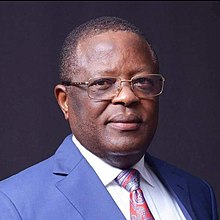 Director General of the National Emergency Management Agency (NEMA) Alhaji Muhammad Sani Sidi has alerted countries in the West African Sub-region of the increasing incidences of disaster across the zone and advised the governments to take issues of disaster management more seriously to promote safety and development.
Director General of the National Emergency Management Agency (NEMA) Alhaji Muhammad Sani Sidi has alerted countries in the West African Sub-region of the increasing incidences of disaster across the zone and advised the governments to take issues of disaster management more seriously to promote safety and development.
Speaking at the opening of the 7th annual consultation of the Regional Committee for Disaster Management in West Africa (GECEAO) at the ECOWAS Secretariat, Abuja on Tuesday, Sani Sidi said climate change related challenges have significantly increased the occurrences of disasters across the globe in recent years.
“Such disasters which are more pronounced in developing nations with weak capacity for adaptation have quite often resulted in large scale devastation, loss of lives and significant ecological dislocation.
“Similarly, economic losses from disasters, both natural and human induced, have become a recurring phenomenon.
“In 2010, United Nations Office for Disaster Risk Reduction estimated losses from natural catastrophes and human-induced disasters amounted to a staggering 222 billion dollars-more than triple the amount of losses in the previous year.
“Nigeria, as a nation, has also recorded its own experience of the negative impacts of climate variability in the recent past.”
Recalling the devastating experience, which Nigeria had on flooding in 2012, the Director General said “the wide-spread flood disaster of 2012 which occurred in 23 States of the Federation, affected 7,705,398 people, displaced 2,157,419, caused the death of 363, destroyed 597,476 houses and resulted in unprecedented ecological damage.”
According to him, the 2012 flood was a glaring testimony to the growing intensity of climate change related disasters in Nigeria and indeed the West Africa sub-region.
“Extreme weather conditions, including excessive rainfall, severe windstorm, heat-wave and droughts have become more frequent with adverse effects on the economy, environment, food security, lives and livelihoods. Indeed, the world is increasingly becoming a hostile place to live in.
“Unlike the developed nations where, proportional losses due to disasters are in decline, people in the developing countries including the ECOWAS nations, are increasingly vulnerable, to the extent that they account for a large percentage of global disaster related losses and secondary hazards.
He noted that the three-day 2013 consultation among disaster management stakeholders of the ECOWAS community has become quite significant “given our recent experience on wide ranging and increasingly complex cross-boarders emergencies in the sub-region.
“You will agree with me that cross fertilization of ideas in a forum like this, mutual support, sharing of experiences, assets and expertise among ECOWAS countries has become necessary as we strive to brace up to the challenges of emergency preparedness, response and recovery in west Africa and beyond.”
He commended the efforts of ECOWAS, the UN-OCHA, the IRCRC and all individuals and organisations that worked assiduously towards the success of the meeting.
Sani Sidi also noted that developing strategic partnerships initiatives with sister African countries on disaster risk reduction and emergency preparedness, is in line with NEMA’s drive to foster regional cooperation among ECOWAS countries.
“In this regards, NEMA has over the years developed a well trained workforce and acquired strategic facilities and assets that can easily be deployed beyond the shores of Nigeria for timely and effective emergency response, mitigation and recovery.



